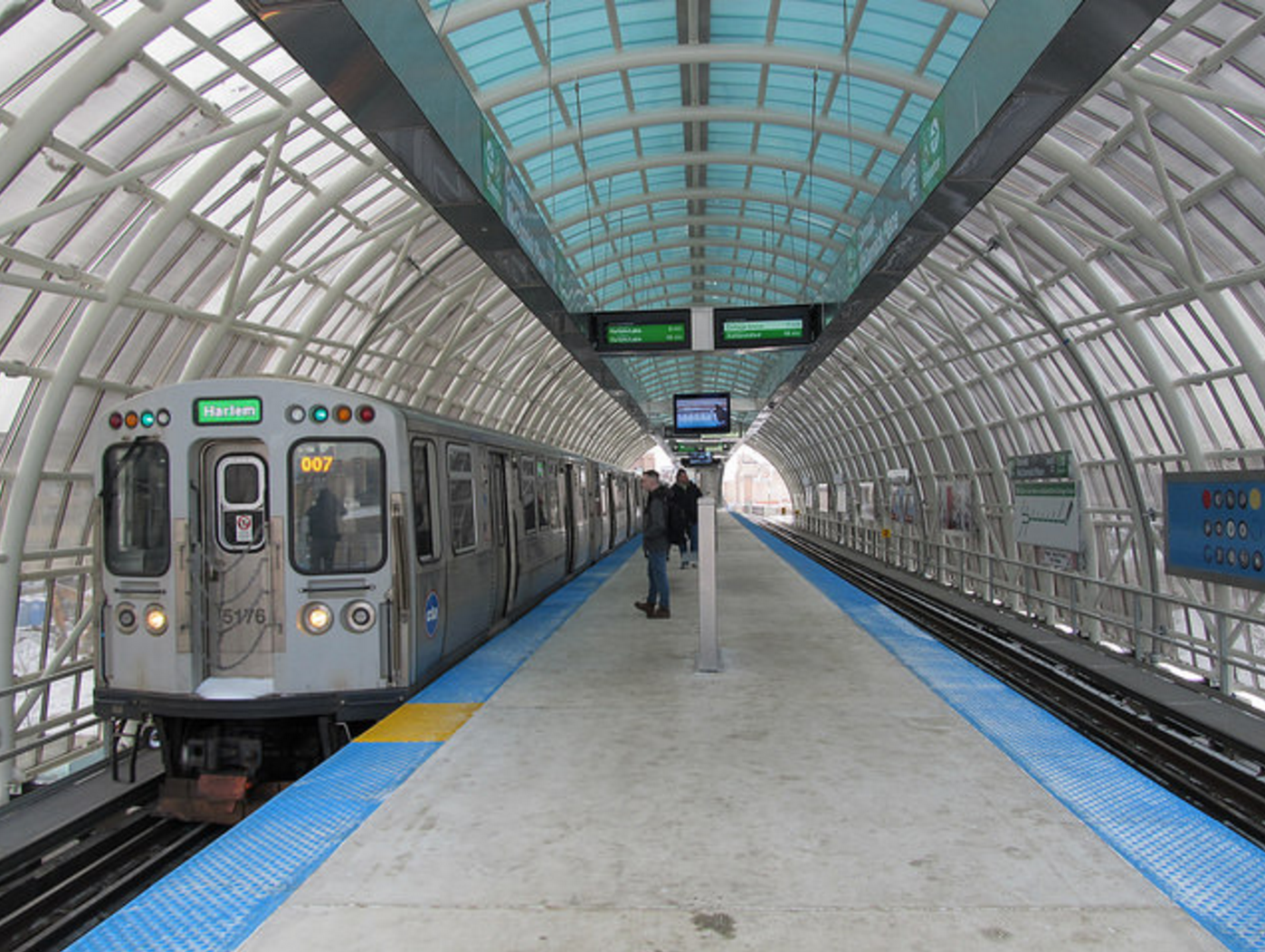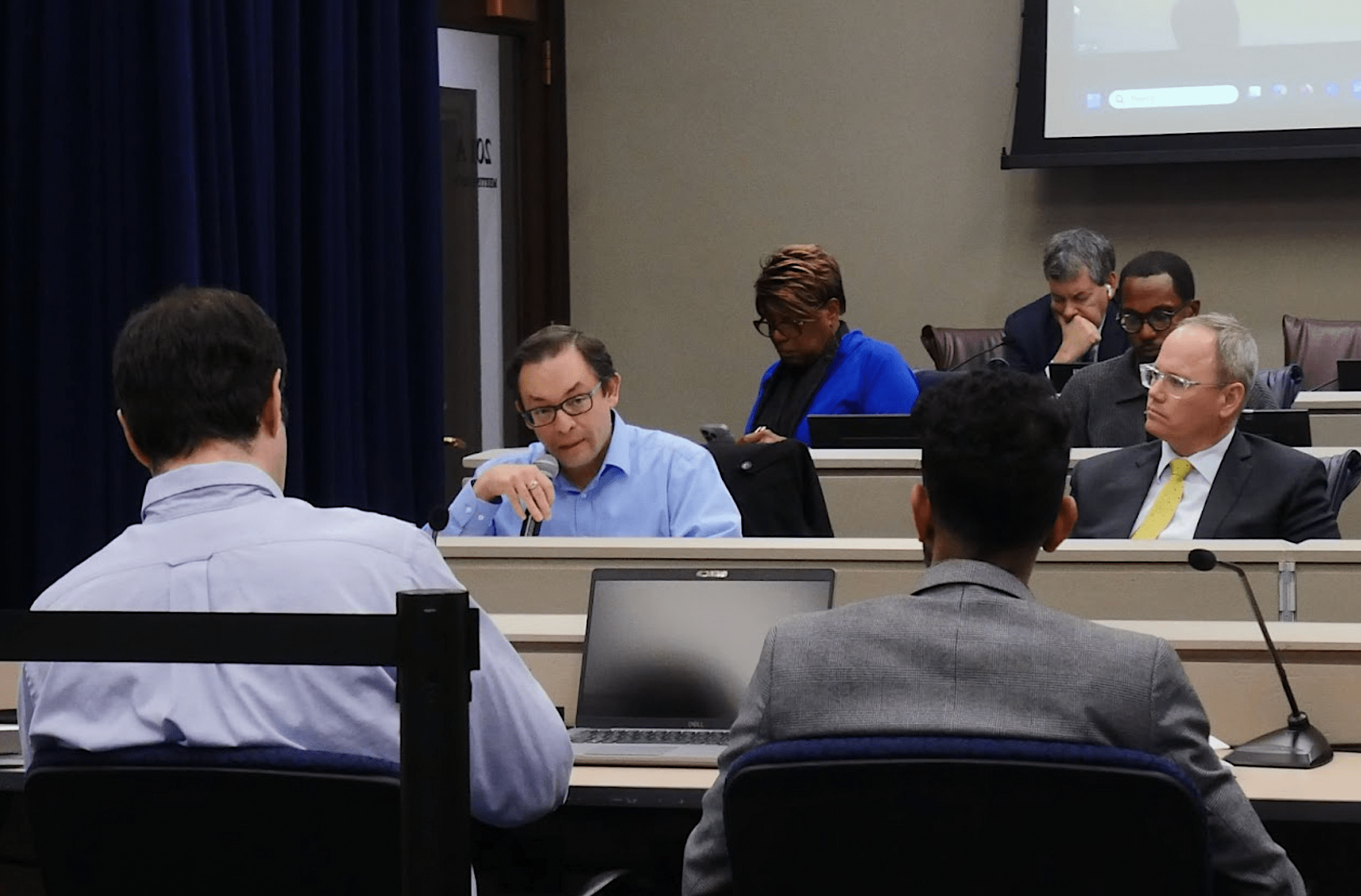Today the Chicago City Council approved Mayor Rahm Emanuel’s 2018 budget, including a new fee on ride-hailing trips to fund the CTA. In addition, the transit agency announced $20 million in cost reductions and $3 million in new revenue, which should help to plug the $33 million budget hole it’s currently facing.
The ride-hailing tax represents a sensible approach to leveling the playing field for buses and trains in the wake of recent studies that found services like Uber and Lyft are increasing congestion in cities and reducing transit ridership. According to the CTA’s latest monthly ridership report, released in May, the year-to-date total for bus and rail ridership had declined by 4.3 percent compared to 2016, which the agency attributes to competition from ride-hailing.
The new tax will add a 15-cent surcharge to the existing city ride-hailing fee of 52 cents per trip, 67 cents total, next year. The surcharge, which will affect Lyft, Uber, and smaller competitors, will be increased to 20 cents, to 72 cents total, in 2019. The city projects this fee will raised $16 million in 2018, which the CTA plans to use on infrastructure improvements, with $21 million expected in 2019.
Active Transportation Alliance director Ron Burke applauded the measure. “The fee increases on Uber and Lyft rides to pay for public transit upgrades… is good news for everyone who cares about preserving healthy, sustainable and equitable transportation options across Chicago,” he said in a statement. “CTA faces an enormous backlog of repairs just to maintain current bus and rail infrastructure, and state leaders continue to slash funding despite the proven economic benefits of public transit investment.”
Indeed, the budget deal Illinois legislators approved last summer is largely to blame for the $33 million the CTA is facing. In a November 8 letter, Regional Transit Authority head Leanne Redden warned CTA president Dorval Carter that the transit agency should raise fares in order to balance its budget, or else face massive service cuts. Emanuel and several aldermen have said that reducing service is a non-starter, although they haven’t ruled out raising fares. Last week Carter promised he would look under every metaphorical couch cushion for possible cost-saving measures before turning to a fare hike as a last resort.
Today’s announcement of $20 million in non-service-related budget cuts, plus $3 million in increased ad and concessions revenue, seems to represent a step in the right direction. Among the cost savings the CTA says it has identified for 2018 is the elimination of 45 vacant behind-the-scenes jobs, plus a hiring freeze on for another 70 positions. The agency calculates that this will result in a savings of $12.5 million for 2018.
The CTA also says it will save $4.7 million in 2018 by locking in contractual prices for fuel and electricity. The agency also claims it will save $3 million next year “by holding the line on contractual expenses.” An additional $3 million is expected from ad sales and concessions to food and retail businesses on CTA property.
The CTA plans to release its final budget later this week, which will reveal whether or not a fare hike is also in the works.





